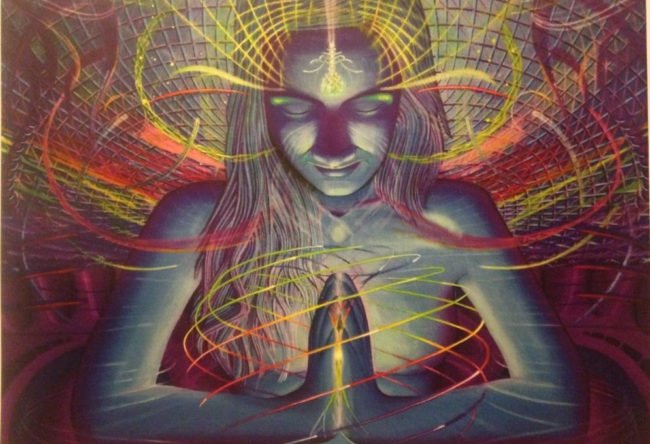“Wisdom is the leader: next follows moderation; and from the union of these two with courage springs justice.” ~ Plato

Human excellence is the artwork of character. Character is the art of practicing the four cardinal virtues. Training the four cardinal virtues (courage, moderation, understanding, and justice) results in moral virtue, which is quality encapsulated by means of the concept of arete. And arete cultivated over an entire life can result in eudaimonia, human flourishing.
The idea of arete is from Homeric instances. Despite the fact that there's no unique definition, it is associated with bravery and effectiveness, in detail certain up with the belief of achievement and the act of residing up to 1’s full capability.
But it nearly absolutely hinges at the 4 cardinal virtues. In the Republic, Socrates assumed a extensive reputation of them as the core qualities in an excellent human. Permit’s destroy them down…
1) Courage (fortitude):
“Without courage you can’t practice any other virtue consistently.” ~ Maya Angelou
Braveness is the bedrock of human excellence. Without the preliminary soar of courage there may be no freedom, and so there may be no excellence. One is merely confined to the conventional, inhibited by means of the whims of others, imprisoned in the container of the popularity quo, and hampered by old reasoning.
With the bounce of braveness, but, one is emancipated. One is delivered into liberation. The world unlocks. The mind unbolts. The soul unfastens. Inhibitions dissolve into serendipity, adaptability, and improvisation. Obstacles remodel into horizons. Consolation zones stretch into journey.
However, there may be a great line among courage and recklessness. Courage includes seizing one’s impulses simply as tons because it entails seizing the day. One need to be able to reply to a given state of affairs with the right stability of apprehension and self belief. Too much braveness results in recklessness; too little, to cowardice. Becoming that the next cardinal virtue is moderation.
2) Moderation (temperance):
“After the ecstasy, the laundry.” ~ Jack Kornfield
The beauty of life is that during order for it to exist there should be balance. The ugliness of existence is that we are commonly unable to apprehend what that balance is. Moderation can be deceiving, especially while we’re not tuned into healthy frequencies.
Fortuitously, fitness is a benchmark for moderation. It’s the middle of usual regulation. Regrettably, this benchmark is hidden in a ‘language older than phrases,’ that could now and again seem impossible to decode.
Despite the fact that some matters ought to be moderated more than others, extremism in whatever is the bane of health. We are able to breathe too much oxygen. We are able to drink too much water. We can even stay an excessive amount of in the moment.
We moderate ‘being within the second’ with the conclusion that even the moment wishes a beyond and a destiny to outline it. We hold our non-public health thru moderation so that fitness in preferred can become take place. Indeed. I live honestly, so that you may additionally surely live.
A very good rule of thumb is: moderation in all things, to consist of moderation. This way we’re proactively injecting stability into the cosmos, at the same time as on the equal time taking part in life. The secret is to accept responsibility for the consequences of both our slight and immoderate selections. Elaborate, however expertise can help.
3) Wisdom (prudence):
“To attain knowledge, add things every day. To attain wisdom, remove things every day.” ~ Lao Tzu
Wisdom cannot be taught. Expertise can be taught, but no longer know-how. We will discover wisdom, stay in it through enjoy, do wonders through it thereafter, however we can't teach it.
If we outline expertise as a sensible knowledge of cosmic regulation and the talent (purpose) in applying it to an ever-changing impermanent international, we see how it can not gain knowledge of, best skilled. Awareness is hands-on, never 2nd-hand. Understanding is 2nd-hand, quantifiable, and measurable, but no longer expertise.
As Dostoevsky said, “The cleverest of all, for my part, is the man who calls himself a idiot at the least once a month.” It’s the humility on the heart of understanding that cleanses hubris from the attention so that justice may be actualized.
4) Justice (liberty):
“The fairest rules are those to which everyone would agree if they did not know how much power they would have.” ~ John Rawls
Humans are social creatures. As such, we also are tale-telling creatures that create deep mythologies out of the memories we tell each other. A number of those testimonies are fiction and a number of them are nonfiction, however they all require honesty and forthrightness if you want to be simply. Sincere conversation is the key.
Justice, essentially, is sincere social communication and interaction. It’s being responsible with our strength, regardless of how a good deal power we'd have. Human excellence is predicated upon how accountable we are with our electricity over others.
If we lord our strength over others, we're being unjust. If we use our electricity to assist others flourish, we're being just. If we hoard strength at the expense of others, we're being unjust and tyrannical. If we expiate electricity to empower others, we are being simply and prestigious.
Ethos (ethike arete) is the heart of justice. It’s an important element of a strong person. An moral human tends to be an superb human. The artwork of individual is a mastery of ethics practiced through the 4 cardinal virtues. Braveness frees person. Moderation balances character. Information guides man or woman. Justice socially stabilizes character.
Thru these four virtues the top notch human emerges as a commemorated and valuable catalyst for human flourishing. New, unique, incomparable human beings who deliver themselves values, who create themselves out of braveness, moderation, knowledge and justice. Who installation systems for the next era and for the healthful and progressive evolution of humanity.